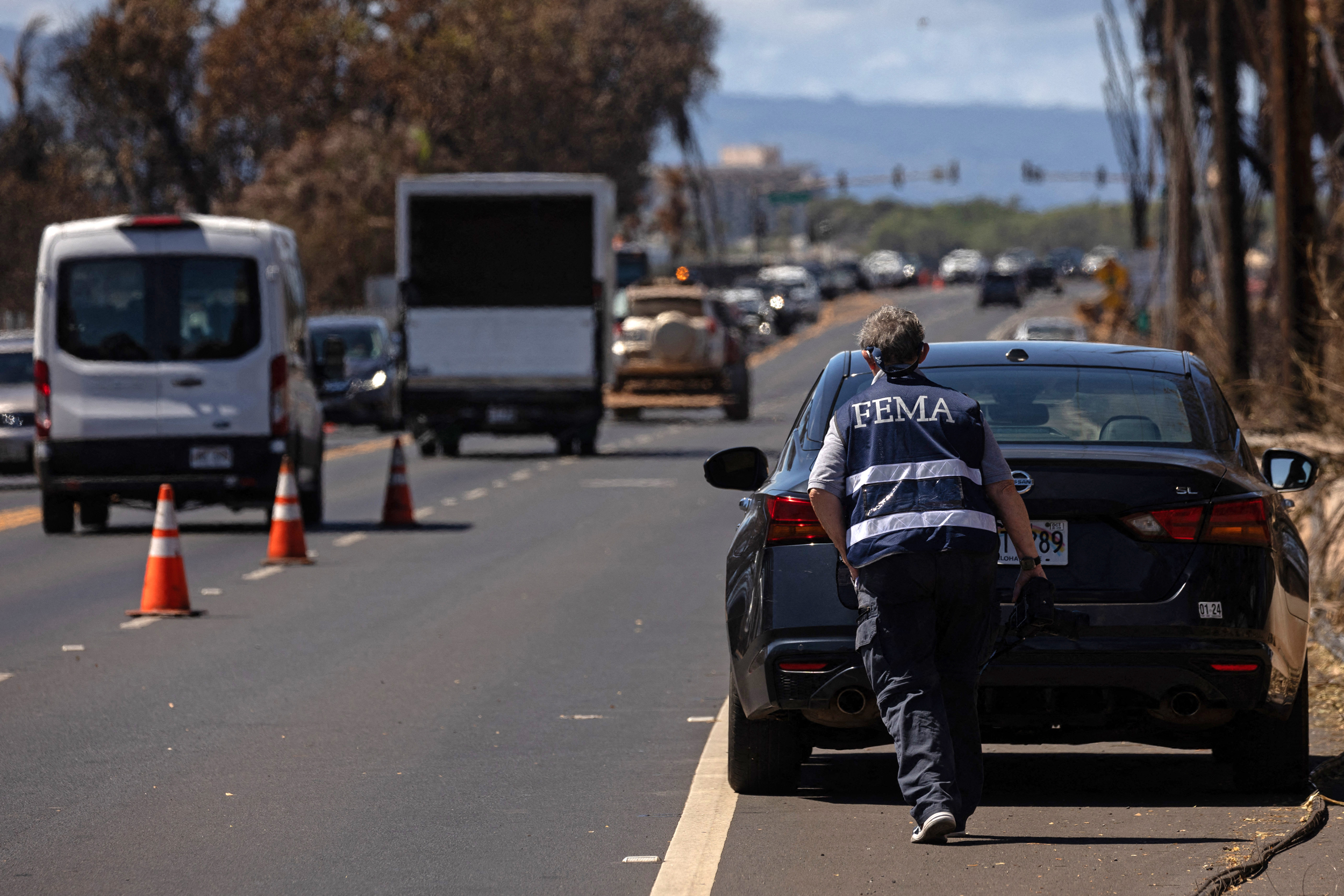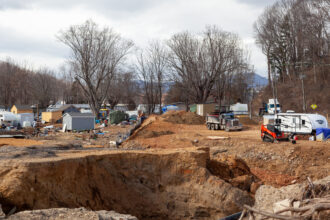President Donald Trump has recently floated the idea of scrapping the federal agency aimed at helping people through disasters like hurricanes, tornadoes, earthquakes and floods. The Federal Emergency Management Agency (FEMA) brings in emergency personnel, supplies and equipment to stricken areas and works to ensure Americans are prepared for emergencies.
Some states have been unable to tap into money they were awarded to help residents recover since early February as hundreds of millions of dollars in grants from the federal agency continue to be frozen, despite court orders to release them.
Nearly half of the country’s attorneys general are making a legal effort to force the Trump administration to unfreeze federal disaster relief funds. The March 24 filing in the U.S. District Court for Rhode Island from 23 attorneys general looks to enforce a preliminary injunction issued on March 6, blocking the administration from unlawfully freezing funds from FEMA.
At least 215 FEMA grants to at least 19 states have remained frozen or are inaccessible as of March 12, according to the filing.
Despite court orders blocking the funding pause, the attorneys general argued that because states have still not received their awarded funds, critical programming will be disrupted.
Disaster relief efforts benefiting people and communities affected by the 2023 Maui wildfires that caused extreme damage to the historic town of Lahaina, killed over 100 people and displaced thousands of Hawaiʻi residents, are expected to end on April 4 if funds aren’t released, according to the filing.
Before the pause, Hawaii would receive reimbursement for its recovery efforts through the Disaster Case Management Program (DCMP) for more than 4,000 people within one week of submitting a request, the filing says. The wait time now nears 30 days, according to court documents. A key requirement of the FEMA funds to Hawaii is that the state isn’t allowed to have more than three business days worth of cash on hand.
“FEMA’s actions affect states across the nation—and the DCMP is an example of the serious consequences that can arise from abruptly changing how funds are disbursed,” Hawaii Attorney General Anne Lopez stated.
Oregon is waiting for more than $129 million in federal funds and hasn’t been paid on its FEMA requests for more than 30 days.
“The Trump administration’s refusal to release this funding is not just dangerous—it’s reckless,” Oregon Attorney General Dan Rayfield said. “It will harm people and we won’t stand by while the federal government plays politics with people’s lives.”
In Colorado, the state’s emergency management agency has requested or tried to request more than $33 million in reimbursement costs from FEMA under 14 grant programs, according to the filing. Many of the requests are for flood hazard mitigation and other emergency preparedness measures. None of the requests have been approved.
The future of FEMA is unclear as the administration takes its first steps to dismantle the agency’s workforce. More than 200 employees at the agency—which was already understaffed, by many accounts—were fired last month. Homeland Security Secretary Kristi Noem said she planned to “eliminate FEMA” during a televised cabinet meeting on Monday.
“It will harm people and we won’t stand by while the federal government plays politics with people’s lives.”
— Oregon Attorney General Dan Rayfield
Trump has accused FEMA of mishandling emergency relief efforts in North Carolina and has said he prefers states be given federal money to handle disasters themselves. The federal agency has faced increased criticism of its responses to disasters in recent decades, particularly after Hurricane Katrina in 2005.
The legal fight to redeem these federal disaster relief dollars began one week after Trump took office. The 23 attorneys general filed their initial lawsuit on Jan. 28, and on Jan. 31, the court granted their request for a temporary restraining order that blocked the implementation of the administration’s funding freeze until the court could provide further instruction.
On Feb. 7, the attorneys general filed motions to enforce the preliminary injunction in order to stop the freeze. The group filed a second motion Feb. 28 seeking enforcement to stop the administration from freezing FEMA funds.
On March 6, the attorneys general won the preliminary injunction to stop the federal funding freeze. As part of the injunction, the court ordered the administration to provide evidence that it had unfrozen FEMA funds by March 14; however, the funds continue to be unavailable, the attorneys general wrote.
The effort is led by the attorneys general of California, Illinois, Massachusetts, New Jersey, New York and Rhode Island. In the coalition are the attorneys general of Arizona, Colorado, Connecticut, Delaware, Hawaii, Maine, Maryland, Michigan, Minnesota, Nevada, New Mexico, North Carolina, Oregon, Vermont, Washington, Wisconsin and the District of Columbia.
About This Story
Perhaps you noticed: This story, like all the news we publish, is free to read. That’s because Inside Climate News is a 501c3 nonprofit organization. We do not charge a subscription fee, lock our news behind a paywall, or clutter our website with ads. We make our news on climate and the environment freely available to you and anyone who wants it.
That’s not all. We also share our news for free with scores of other media organizations around the country. Many of them can’t afford to do environmental journalism of their own. We’ve built bureaus from coast to coast to report local stories, collaborate with local newsrooms and co-publish articles so that this vital work is shared as widely as possible.
Two of us launched ICN in 2007. Six years later we earned a Pulitzer Prize for National Reporting, and now we run the oldest and largest dedicated climate newsroom in the nation. We tell the story in all its complexity. We hold polluters accountable. We expose environmental injustice. We debunk misinformation. We scrutinize solutions and inspire action.
Donations from readers like you fund every aspect of what we do. If you don’t already, will you support our ongoing work, our reporting on the biggest crisis facing our planet, and help us reach even more readers in more places?
Please take a moment to make a tax-deductible donation. Every one of them makes a difference.
Thank you,













